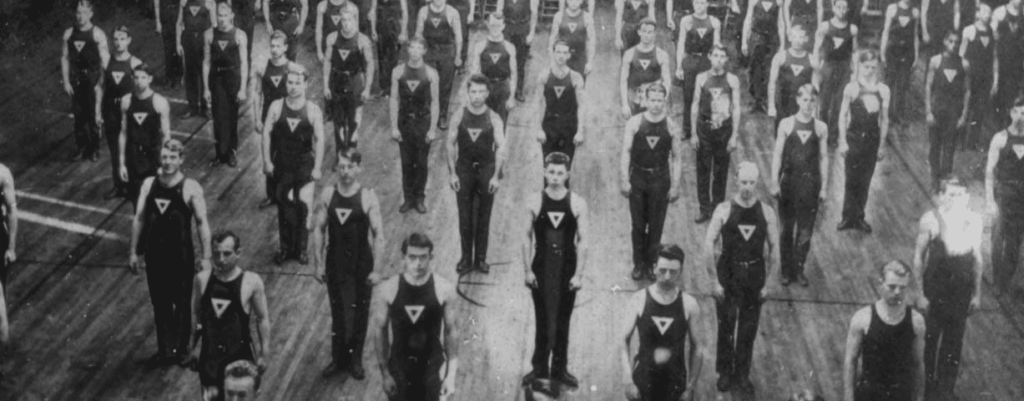YMCA is a global youth organization based in Geneva, Switzerland, with over 60 million beneficiaries in 120 countries. It was founded on June 6, 1844, by George William. The ultimate goal was to put Christian values into practice by developing a healthy body, mind, and spirit. But do you know that the organization was founded under the principles of muscular Christianity?
The YMCA (Young Men’s Christian Association) was founded on “Muscular Christianity,” a Christian philosophy that links physical strength and development with Christian spiritual growth. This philosophy also influenced the development of the modern Olympic Games.
The Origin of Muscular Christianity
Until the Age of Enlightenment, Christian body aesthetics were primarily concerned with holy suffering. In Antiquity and the Middle Ages, asceticism, or the denial of bodily needs and beauty, piqued the interest of both laity and clergy. The belief that the flesh is a distraction from divinity is a central tenet of asceticism. Catharism, for example, believed that the flesh was completely corrupted.
Muscular Christianity was never a formally organized movement. Instead, it was a cultural trend that took various forms and was supported by multiple figures and churches. Muscular Christianity can be traced back to the Apostle Paul, who used athletic metaphors to describe the difficulties of the Christian life.
However, the explicit promotion of sport and exercise in Christianity did not appear until 1762, when Rousseau’s Emile described physical education as important for moral character formation. (Source: Timeline)
Sports and Muscular Christianity
According to Nicholas Watson, Muscular Christianity’s ideology aided in the development of the Olympic Games. The founder of the modern Olympics, Pierre de Coubertin, was heavily influenced by Muscular Christianity, which was one of his primary inspirations, along with the Ancient Olympic Games of Greece.
Muscular Christianity has experienced a resurgence in popularity in the twenty-first century, owing to a disproportionately high number of men becoming atheist or agnostic and a perceived crisis of masculinity. Muscular Christianity is best represented in the United States by athletes such as Tim Tebow, Manny Pacquiao, Josh Hamilton, and Jeremy Lin. These athletes frequently speak and write about their faith and share their convictions with their fans.
New Calvinist pastors like John Piper have advocated for a more masculine Christianity and the concept of Christ.
God revealed Himself in the Bible pervasively as king, not queen; father, not a mother; the second person of the Trinity is revealed as the eternal Son, not daughter; the Father and the Son create man and woman in His image and give them the name man, the name of the male.
John Piper, New Calvinist Pastor
In his book Manhood in America, Michael Kimmel claims that the University of Notre Dame promotes Muscular Christianity because the school is Catholic. Male varsity athletes are thought to follow Thomas Hughes’ six Muscular Christianity criteria. For example, the football team at Notre Dame is made up of Catholic men who believe their bodies are gifts from God. As a result, they exercise their bodies in the name of God. (Source: Timeline)
Image from ArtofManliness
